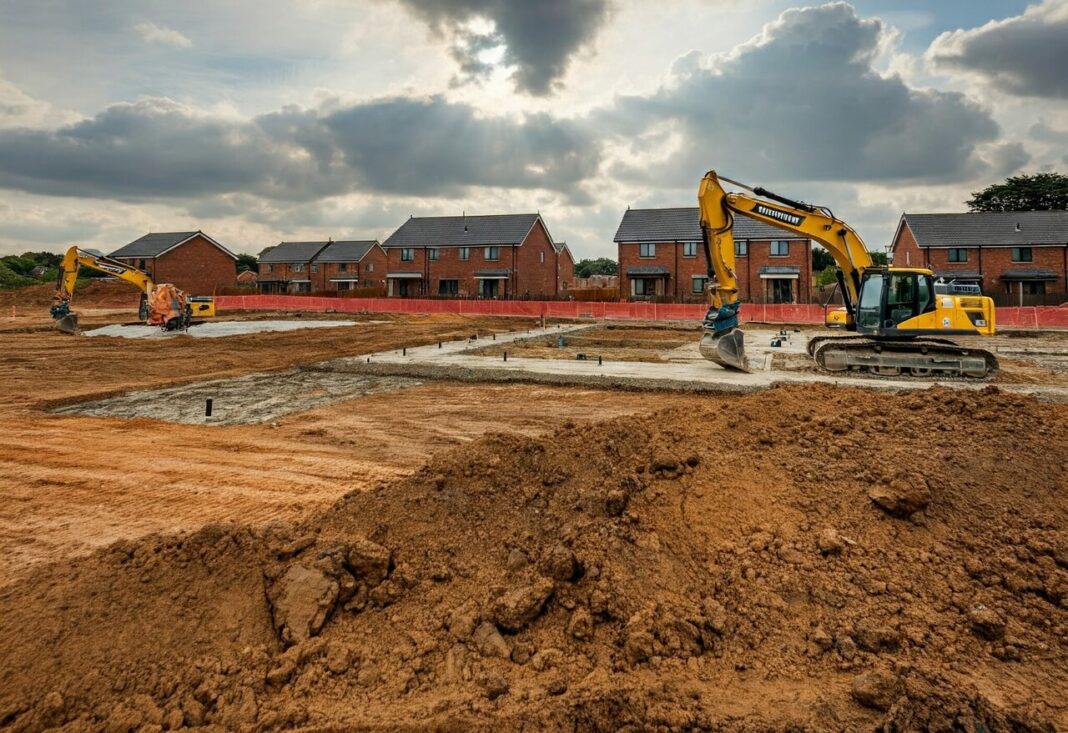The UK housing market cooled markedly in March, as the flurry of activity seen earlier in the year gave way to a more subdued mood following the expiry of the temporary stamp duty relief.
According to the latest UK Residential Market Survey by the Royal Institution of Chartered Surveyors (RICS), new buyer enquiries registered their sharpest monthly decline since September 2023. The net balance fell to -32%, from -16% in February, reflecting a swift deceleration in momentum.
Sales activity followed suit. Agreed sales slipped further into negative territory, posting a net balance of -16%, down from -13% the month before.
Forward-looking indicators offered little in the way of immediate reassurance, with a continued dip expected over the next quarter. However, sentiment over the 12-month horizon remains more optimistic, with a net balance of +11% of surveyors anticipating a recovery in sales volumes.
STABILISATION, NOT CORRECTION
Price growth has largely stalled, with the headline national indicator falling to +2% from +11% in February and +20% in January. This flattening of sentiment is evident across most UK regions, though Scotland and Northern Ireland continue to demonstrate a degree of resilience, bucking the broader cooling trend.

Simon Rubinsohn, RICS Chief Economist, says: “The end of the stamp duty break was always likely to cause a lull. But the deterioration in market confidence appears to have been compounded by wider economic uncertainty and growing anxiety over global trade tensions.
“While the longer-term outlook remains relatively stable, the trajectory is fragile. Much will hinge on how monetary policy evolves in response to inflationary pressures and the broader global backdrop.”
RENTAL PRESSURES
In contrast to the sales market, the lettings sector showed renewed momentum. Tenant demand increased for the first time since October 2024, with a net balance of +20% of respondents reporting a rise. Landlord instructions, however, remained firmly in decline at -24%, exacerbating the mismatch between supply and demand.

The result is a further tightening in rental stock, fuelling expectations of rising rents through the summer. A net balance of +31% of respondents anticipate further rental increases in the coming months.
Jeremy Leaf, a north London estate agent and former RICS Residential Chairman, says: “We’re seeing tenant demand supported by frustrated first-time buyers who missed the window to benefit from the stamp duty incentive.
At the same time, the steady erosion of landlord numbers has only intensified the squeeze.”
HOLD FIRE
While the rush to beat the April deadline brought forward a number of transactions, agents report that the market has not ground to a halt.
“Buyer enthusiasm has understandably dipped,” adds Leaf, “but we are not seeing widespread withdrawals or substantial renegotiations. Many clients are simply pausing, waiting for signs of greater stability in the months ahead.”
TARIFF RISKS

Tom Bill, head of UK residential research at Knight Frank, reckons that while mortgage rates dipping below 4% in some cases has helped steady nerves, volatility in global markets and speculation over tariffs could pose risks.
He says: “A return to calmer money markets would help. The concern is that further inflationary pressure might ultimately lead to renewed upward pressure on mortgage rates.”









